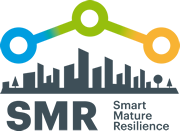Bristol (United Kingdom) has laid out its path towards greater resilience by officially launching its Resilience Strategy last Monday, comprising resilience pillars, goals and transformative actions to be realised over the next 50 years. The council shared the ‘Bristol Resilience Strategy’ - a framework to protect Bristol against potential shocks and pressures it may encounter in the future.
As the plan is looking ahead over the next 50 years, there is a large focus on young people and how they can help build a more resilient future for the city. Many of the ideas included in the strategy will benefit the next generation, these include; votes for 16 year olds, free bus travel for U16s and a vision for a child-friendly city.
Marvin Rees, Mayor of Bristol, said: “Resilience speaks to everything that we do and this strategy will help us, our partners and the community develop a strong plan for our shared future.
“By setting out a clear and deliberate vision of what and where we want to be as a city, we hope to be better placed to deal with issues that affect us now and into the future.
“We need to take bold action to make sure that Bristol is able to adapt, develop and deliver change effectively and in the best interests of everyone who lives and works here. I’m pleased that we have this opportunity to work with our communities and include people in owning and shaping our long term future. Together we can help make sure everyone feels the benefit of Bristol’s strengths and success whilst being best protected from everything life throws at us.”
The strategy, which has been drawn up with key stakeholders, aims to build on the work already being done to make the city socially, environmentally and economically sustainable. It sets out intentions to create a ‘flourishing’ city and tackle some of Bristol’s major issues, including, traffic congestion, affordable housing and child poverty.
Bristol is a Tier-2 city of Smart Mature Resilience. As part of the project, Bristol is working closely together with its Tier 1 city partner of Donostia (Spain) and the project scientists to develop tools to support resilience development in both cities and in other cities around Europe.
Bristol City Council has already contributed to the development of the new Resilience Information Portal, a collaborative environment designed to facilitate awareness and engagement among key partners in resilience building. A prototype of the platform is already available online, and cities are invited to make use of this free tool to complement their internal and external communication platforms within their city administration and as part of communicating resilience-related information with their citizens.
Bristol has also been actively involved in developing the Resilience Maturity Model, which enables cities to self-assess its resilience status and provides a roadmap for how cities’ resilience development could be rolled out. The Maturity Model is already online and available for cities to download and use.
Bristol has also contributed to pilot testing of the Risk Systemicity Questionnaire, which is currently under development by the University of Strathclyde. The Risk Systemicity Questionnaire is an interactive tool that allows users to assess their cities’ risks and risk preparedness and suggests possible policies that could be adopted in order to make the cities more resilient against these risks.
The city’s engagement in the Smart Mature Resilience project is one of the ways in which Bristol is taking steps to achieve its resilience aims, such as making the city’s success available to all and addressing the challenges of inequality in health and access to economic opportunities by supporting and empowering the city’s diverse communities.











